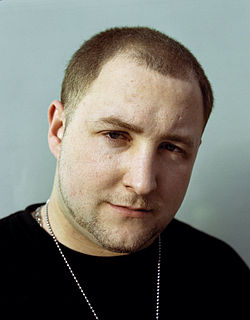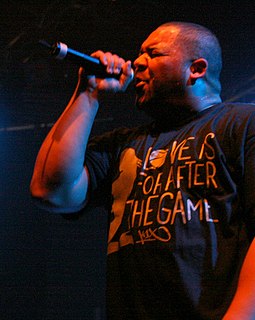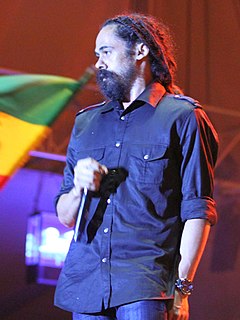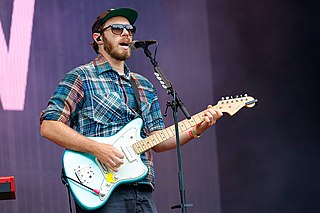A Quote by Statik Selektah
I come from a traditional hip-hop background.
Quote Topics
Related Quotes
Somewhere down the line, the evil ones stole the legacy of hip hop and flipped it to a corporate type of hip hop. They decided to tell everybody 'Well, this is what hip hop is,' instead of coming back to the pioneers and getting the true definition of what hip hop is and what it was and what we been pushing for all these years.
My definition of hip hop is taking elements from many other spheres of music to make hip hop. Whether it be breakbeat, whether it be the groove and grunt of James Brown or the pickle-pop sounds of Kraftwerk or Yellow Magic Orchestra, hip hop is also part of what they call hip-house now, or trip hop, or even parts of drum n' bass.
To me, that's the biggest problem with hip-hop today is the fact that everyone believes that all of hip-hop is rap music, and that, when you say "hip-hop," it's synonymous with rap. That when you say "hip-hop," you should be thinking about breakdancing, graffiti art, or MCing - which is the proper name for rap - DJing, beat-boxing, language, fashion, knowledge, trade. You should be thinking about a culture when you say, "hip-hop.".


































